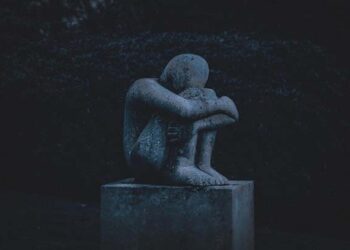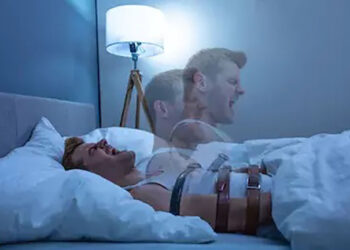Mental health disorders are becoming more and more common with every passing day. It’s sad to see every other person suffering from a mental health disorder but what makes the story more sob is that a lot of people still refuse to accept the reality of mental health.
Many people think of depression as everyday life stress. Similarly, people think of panic attacks or anxiety attacks as something voluntary while in my opinion, it’s an involuntary action that is out of one’s control.
Not having mental health awareness is the worst thing in today’s world. Thus, I’m going to share with you a few common mental health disorders, their symptoms, and treatment options so that you know what it’s really like to fall into the pits of disorganized or compromised mental health.
Please have a look at the rundown given below.
Generalized Anxiety Disorder
Let’s start with one of the most common mental health disorders of all time, generalized anxiety disorder, also known as GAD. Generalized anxiety disorder is a lot more than your everyday life worries.
It’s a disorder that is characterized by chronic worries and fears that keep making the rounds for six months or more. Although there are several kinds of anxiety disorders, generalized anxiety disorder is usually the most prevalent among all.
Symptoms of Generalized Anxiety Disorder
- Persistent worries and fears
- Muscle tension or digestive issues
- Trembling or shaking
- Dizziness and fatigue
- Shortness of breath and excessive sweating
- Inability to sleep calmly
- Irregular, fast, or strong heartbeat
Treatment Options for Generalized Anxiety Disorder
- Selective norepinephrine reuptake inhibitors (SNRIs)
- Selective serotonin reuptake inhibitors (SSRIs)
- Antidepressants for low mood
- Cognitive-behavioral therapy (CBT)
- Exercises like deep breathing and meditation
- Plants and herbs, including chamomile and Canadian shrooms
Major Depressive Disorder
Another prevalent mental health disorder is major depressive disorder, commonly referred to as clinical depression. As per the WHO fact sheet, approximately 264 million people from around the world have clinical depression.
What makes the situation more concerning is the fact that the figures are increasing by the day. As I mentioned earlier, major depressive disorder is not only about everyday life stress. It brings along various other symptoms that can make your life utterly miserable.
Symptoms of Major Depressive Disorder
- Persistent feelings of pessimism and hopelessness
- Low mood and repeated weeping spells
- Loss of interest in everyday life activities
- Insomnia or hypersomnia
- Binge eating or loss of appetite
- Body aches and fatigue
- Suicidal thoughts or attempts in severe cases
Treatment Options for Major Depressive Disorder
- Antidepressants and anti-anxiety medications
- Selective serotonin reuptake inhibitors (SSRIs)
- Muscle relaxants in case of severe body aches
- Sleep-inducing agents to treat insomnia
- Lifestyle rehabilitation, including regular exercise
- Cognitive-behavioral therapy (CBT)
Schizophrenia
Schizophrenia is indeed the most severe mental health disorder. It’s a psychotic illness that brings along harsh symptoms like hallucinations and delusions. A withdrawal from friends and family is also commonly seen in people with schizophrenia.
According to statistics, more than 20 million people have schizophrenia worldwide. It is further said that 20% of schizophrenics attempt suicide at least once. Not to forget, they’re two times more likely to die earlier compared to healthy individuals.
Symptoms of Schizophrenia
- Disorganized speech and inhibited behavior
- Hallucinations and delusions
- Withdrawal from family and friends
- Anhedonia (inability to experience pleasure)
- Lack of motivation and no goal-orientation actions
- Inability to maintain hygiene and absence of a sense of self
- Suicidal thoughts or possible attempts
Treatment Options for Schizophrenia
- First and second-generation antipsychotics
- Antidepressants or benzodiazepines
- Cognitive-behavioral therapy (CBT)
- Electroconvulsive shock treatment (ECT)
- Individual and family therapy
- Vocational rehabilitation and supported employment
Bipolar Disorder
Bipolar disorder, also known as manic depression, is another common mental health disorder that comes with psychotic symptoms. In fact, a lot of experts say that bipolar disorder lies in-between mood and psychotic disorders.
It manifests in different episodes and the symptoms of the disorder depend on the episode one is experiencing. Mania, hypomania, and major depressive episodes are three usual episodes of bipolar disorder. It’s a severe psychological disorder that affects everyone, regardless of age and gender.
Symptoms of Bipolar Disorder
- Decreased need for sleep
- Excessive happiness or excitement
- Over the top behavior and extreme talkativeness
- Appetite and mood disturbances
- Withdrawal from friends and family
- Suicidal thoughts and potentially harmful behavior
Treatment Options for Bipolar Disorder
- Antipsychotics and mood stabilizers
- Antidepressants in case of depression
- Muscle relaxants for severe fatigue
- Electroconvulsive shock treatment (ECT)
- Cognitive-behavioral therapy (CBT)
- Lifestyle changes, such as a balanced diet and a healthy sleep pattern
Obsessive-Compulsive Disorder
The obsessive-compulsive disorder generally referred to as OCD, is also among the most common psychological disorders. It’s characterized by recurring sensations, obsessions, or compulsions.
As mentioned by the National Institute of Mental Health, an estimated 1.2% of the US adults have had OCD in the previous year. It is also said that OCD is more common in females than males, and it’s the same in the entire world.
Symptoms of Obsessive-Compulsive Disorder
- Fear of dirt or contamination
- Recurring thoughts of religious or aggressive thoughts
- Needing things in order and symmetry
- Having difficulty tolerating uncertainty
- Horrific thoughts about losing control
- Repeated thoughts of harming oneself or others
Treatment Options for Obsessive-Compulsive Disorder
- Antidepressants or anti-anxiety medications
- Transcranial magnetic stimulation (TMS)
- Deep brain stimulation (DBS)
- Intensive outpatient and residential treatment program
- Cognitive-behavioral therapy (CBT)
The Final Word…
Besides the ones mentioned above, certain other mental health disorders are quite prevalent these days, including agoraphobia, social anxiety disorder, functional-neurological disorder, delusional disorder, schizoid personality disorder, and more.
Knowing all these details about mental health and related disorders can save you from a lot of potential trouble. You never know what life has in store for you. Getting the right treatment at the right time is crucial, so having mental health awareness in this regard is necessary. I wish you well, my pals. Have a great day ahead!

















